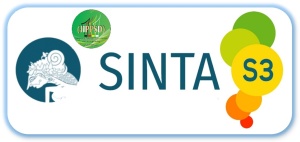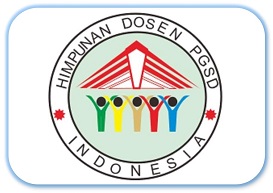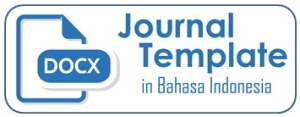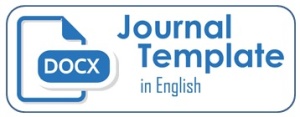Program Merdeka Belajar Kampus Merdeka Untuk Meningkatkan Micro-Skill Lulusan
 ), Puput Puspitorini(2), Cecep Anwar H.F. Santosa(3), Yayat Ruhiat(4),
), Puput Puspitorini(2), Cecep Anwar H.F. Santosa(3), Yayat Ruhiat(4), (1) Universitas Sultan Ageng Tirtayasa, Kota Banten
(2) Universitas Sultan Ageng Tirtayasa, Kota Banten
(3) Universitas Sultan Ageng Tirtayasa, Kota Banten
(4) Universitas Sultan Ageng Tirtayasa, Kota Banten
 Corresponding Author
Corresponding Author
DOI : https://doi.org/10.24036/jippsd.v8i1.126887
Full Text:
 Language : ind
Language : ind
Abstract
Merdeka Belajar—Free Campus (MBKM) is a major step towards transforming Indonesia's higher education system. MBKM adopts the idea of independent learning, provides curriculum flexibility, allows students to participate in learning outside the study program, and encourages close collaboration between universities, the business world and the world of work. So that MBKM becomes an effective forum for students to develop hard skills, soft skills and micro-skills. This research design uses a quantitative with correlational design to measure the relationship between variables. Population and Sample: 87 students in the Serang Regency, Tangerang Regency and Tangerang City, Banten Province, Indonesia. R-Square: The R-square value for Micro-Skills is 0.205 and for Curriculum Development is 0.217, indicating the moderate ability of the model in explaining data variability. Lower Adjusted R-square values (Micro-Skills: 0.166, Curriculum Development: 0.189) indicate model adjustment for the number of predictor variables. F-square: The effect size of the exogenous latent variable on the endogenous latent variable shows a significant contribution of Academic Culture to Curriculum Development (f-square: 0.221), while other relationships are less significant. Path Coefficient: A statistically significant relationship was only found between Academic Culture and Curriculum Development (P = 0.019). Other relationships, such as Social Culture and Ethnocentrism with Micro-Skills or Curriculum Development, did not show statistical significance. MBKM gives students the opportunity to improve social skills, self-management abilities, and the ability to adapt to the work environment. Graduates can develop micro-skills thanks to curriculum flexibility and collaboration with industry. Universities can improve MBKM by focusing on learning relevant to industry demands and field experiences such as internships or practical projects.
Keywords
References
Afriluyanto, T. R. (2017). Fenomena remaja menggunakan media sosial dalam membentuk identitas. KOMUNIKA: Jurnal Dakwah Dan Komunikasi, 11(2), 184-197. https://doi.org/10.24090/komunika.v11i2.1365
Apriliyani, N. V., Hernawan, D., Purnamasari, I., Seran, G. G., & Sastrawan, B. (2022). Implementasi program merdeka belajar kampus merdeka. Jurnal Governansi, 8(1), 11-18. https://doi.org/10.30997/jgs.v8i1.5045
Baharuddin, M. R. (2021). Adaptasi Kurikulum Merdeka Belajar Kampus Merdeka (Fokus: Model MBKM Program Studi). Jurnal Studi Guru dan Pembelajaran, 4(1), 195–205. https://e-journal.my.id/jsgp/article/view/591
Cahya, R. D., Pambudi, D. I., Febri, R., & Wahid, N. (2023). Pop-Up Book Media to Improve Disaster Literacy in “Kurikulum Merdeka” at Elementary School. Jurnal Inovasi Pendidikan dan Pembelajaran Sekolah Dasar, 7(2), 372-386. https://doi.org/10.24036/jippsd.v7i2.125383
Chin, W. W. (1998). The Partial Least Squares Approach to Structural Equation Modeling. Modern Methods for Business Research, 295, 336
Cholilah, M., Tatuwo, A. G. P., Rosdiana, S. P., & Fatirul, A. N. (2023). Pengembangan Kurikulum Merdeka Dalam Satuan Pendidikan Serta Implementasi Kurikulum Merdeka Pada Pembelajaran Abad 21. Sanskara Pendidikan dan Pengajaran, 1(02), 56-67. https://doi.org/10.58812/spp.v1i02.110
Dirjen Dikti Kemendikbud. (2020). Buku Panduan Pelayanan Merdeka Belajar dan Kampus Merdeka. http://dikti.kemdikbud.go.id/wp-content/uploads/2020/05/Buku-Panduan-Merdeka-Belajar-Kampus-Merdeka-2020-1.pdf
Fatmawati, E. (2020). Dukungan Perpustakaan Dalam Implementasi “Kampus Merdeka Dan Merdeka Belajar.” Jurnal Pustaka Ilmiah, 6(2), 1076–1087. https://doi.org/10.20961/jpi.v6i2.46682
Ghufron, G. (2018, September). Revolusi Industri 4.0: Tantangan, Peluang, dan solusi bagi dunia pendidikan. In Seminar Nasional Dan Diskusi Panel Multidisiplin Hasil Penelitian Dan Pengabdian Kepada Masyarakat 2018 (Vol. 1, No. 1).
Hair, J.F., Hult, G.T.M., Ringle, C.M., Sarstedt, M. (2017). A Primer on Partial Least Squares Structural Equation Modeling (PLS-SEM). SAGE Publication, Inc. 2455 Teller Road, Thousand Oak, California 91320.
Harnata, A., Karya, C., Andyani, P., & Sholihat, S. S. (2023). ANALISIS KOMPETENSI PEGAWAI KOMISI PEMILIHAN UMUM KABUPATEN SUMEDANG. JRPA-Journal of Regional Public Administration, 8(2), 33-39.
Leuwol, N. V., Wula, P., Purba, B., Marzuki, I., Brata, D. P. N., Efendi, M. Y., Masrul, M., Sahri, S., Ahdiyat, M., & Sari, I. N. (2020). Pengembangan Sumber Daya Manusia Perguruan Tinggi: Sebuah Konsep, Fakta dan Gagasan. Medan: Yayasan Kita Menulis.
Marjo, H.K. (2013). Penerapan Microskilss dalam Domain Multicultural. Jurnal Konseling dan Pendidikan. Volume 1 Nomor 1, Februari 2013, Hlm 58-66.
Muhsin, H. (2021). Kampus Merdeka Di Era New Normal. Dalam: A. Muslihat dkk. Masa Depan Kampus Merdeka & Merdeka Belajar: Sebuah Bunga Rampai Dosen. 143. Bintang Visitama Publisher.
Muspawi, M., & Lestari, A. (2020). Membangun kesiapan kerja calon tenaga kerja. Jurnal Literasiologi, 4(1). https://doi.org/10.47783/literasiologi.v4i1.138
Rizak, M. (2018). Peran pola komunikasi antarbudaya dalam mencegah konflik antar kelompok agama. Islamic Communication Journal, 3(1), 88-104. https://doi.org/10.21580/icj.2018.3.1.2680
Sekaran, U. & Bougie, R.J., (2016). Research Methods for Business: A skill Building Approach. 7th Edition, John Wiley & Sons Inc. New York, US.
Siregar, G. M. (2021). Teori Kritis Habermas dan Kebijakan Merdeka Belajar. Jurnal Filsafat Indonesia, 4(2), 142-151. https://doi.org/10.23887/jfi.v4i2.34771
Sopiansyah, D., Masruroh, S., Zaqiah, Q. Y., & Erihadiana, M. (2022). Konsep dan Implementasi Kurikulum MBKM (Merdeka Belajar Kampus Merdeka). Reslaj: Religion Education Social Laa Roiba Journal, 4(1), 34-41. https://doi.org/10.47467/reslaj.v4i1.458
Spencer, L. M., & Spencer, P. S. M. (2008). Competence at Work models for superior performance. John Wiley & Sons.
Toni, N., MM, C., Anggara, L., Ak, S., & Ak, M. (2021). Analisis Partial Least Square Studi pada Perusahaan Property dan Real Estate yang Terdaftar di Bursa Efek Indonesia. Merdeka Kreasi Group.
Ulfatin, N. (2022). Merdeka Belajar Konsep, Kebijakan dan Praktik Berdasarkan" Sense Making Perspective" Kognisi Guru. Media Nusa Creative (MNC Publishing).
Wijayanto, A. (2021). Implementasi dan Problematika Merdeka Belajar. OSF Preprints. https://doi.org/10.31219/osf.io/yshk6
Yanuarsari, R., Asmadi, I., Muchtar, H. S., & Sulastini, R. (2022). Peran program merdeka belajar kampus merdeka dalam meningkatkan kemandirian desa. Comm-Edu (Community Education Journal), 5(2), 52-62. https://doi.org/10.22460/comm-edu.v5i2.9659
 Article Metrics
Article Metrics
 Abstract Views : 186 times
Abstract Views : 186 times
 PDF Downloaded : 104 times
PDF Downloaded : 104 times
Refbacks
- There are currently no refbacks.

This work is licensed under a Creative Commons Attribution 4.0 International License.







